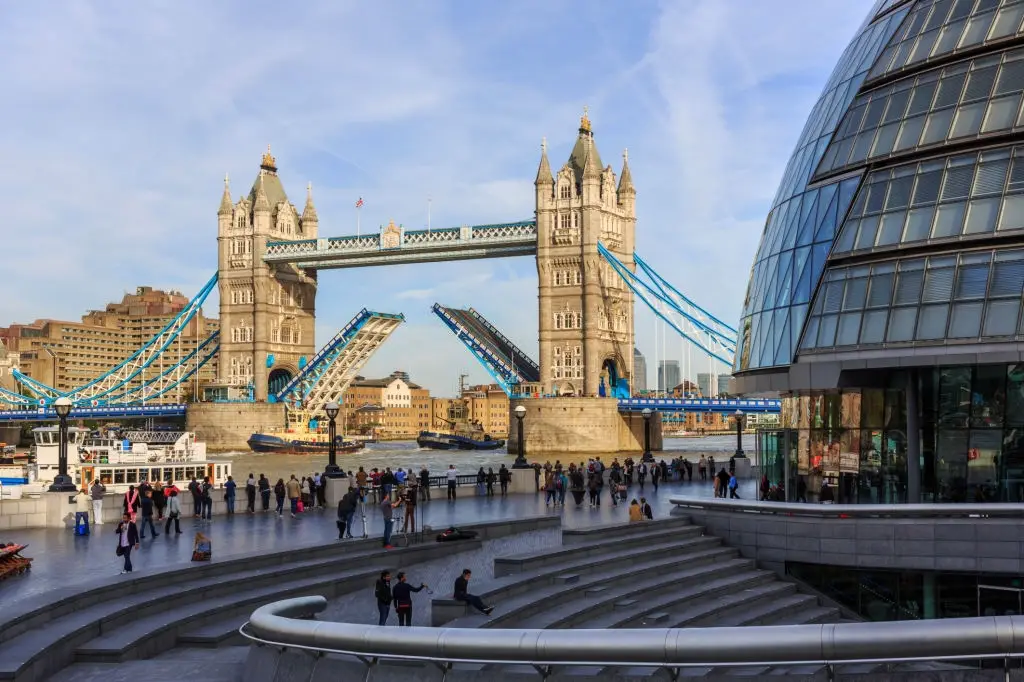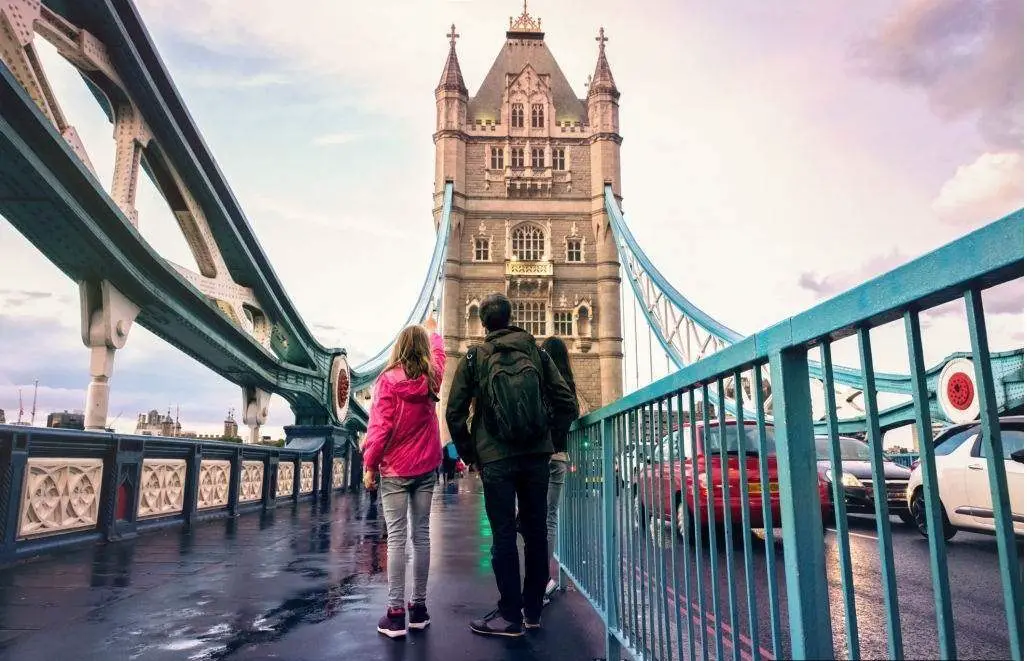Summary
- Begin with essential steps such as setting a budget, determining travel dates, and obtaining necessary travel documents like passports and visas. This initial planning phase lays the groundwork for a successful European adventure.
- Explore Europe's vast array of destinations and create a shortlist based on personal preferences, interests, and the type of experience sought.
- Navigate the options for accommodations, including hotels, hostels, vacation rentals, and consider factors like location, amenities, and budget. Simultaneously, plan transportation, whether it's flights, trains, or car rentals, to ensure seamless travel between destinations.
- Curate an itinerary that balances must-see attractions with off-the-beaten-path experiences. Research and book tickets for popular landmarks or events in advance to avoid long queues and ensure availability.
- Prepare for practical aspects such as currency exchange, travel insurance, packing essentials, language barriers, and cultural norms.
Step Guide to Planning Your Europe Vacation
Europe offers a diverse range of destinations, cultures, and attractions. Planning a vacation in Europe entails a delightful blend of anticipation and meticulous preparation. From the historic streets of Rome to the majestic fjords of Norway, each corner of Europe beckons with its own allure and charm. Whether you're drawn to ancient landmarks, vibrant cities, or serene countryside, the possibilities for adventure are endless.
In this comprehensive article, we'll delve into the essential steps and travel tips to Europe for crafting your perfect getaway, ensuring a memorable and fulfilling travel experience.
1- Determine Your Budget for Your Europe Trip

Before embarking on planning your European vacation, it's crucial to establish a clear understanding of your budget constraints. Your budget will dictate the scope and scale of your trip, influencing everything from accommodations to activities.
Begin by assessing your financial resources realistically, taking into account factors such as transportation costs, accommodation expenses, dining, sightseeing, and souvenirs.
Related Post: Discover the famous budget countries to visit in Europe.
Consider how much you can comfortably allocate to each aspect of your trip, keeping in mind any additional expenses that may arise. Research average costs for travel within Europe, including flights or other transportation options, and explore various accommodation options ranging from budget-friendly hostels to luxury hotels. Factor in the duration of your trip as well, as longer stays will require a larger budget.
Be sure to account for unforeseen expenses or emergencies by setting aside a contingency fund. This can provide peace of mind, knowing you're prepared for unexpected situations that may arise during your travels.
2- Choose Your Destinations in Europe

There are many captivating destinations in Europe, each offering its own unique charm and allure. Narrowing down your choices can be an exciting yet daunting task. Begin by considering your personal interests, preferences, and travel goals.
Research various countries and cities within Europe, taking into account factors such as cultural attractions, historical significance, natural landscapes, culinary experiences, and recreational activities. Create a list of potential destinations that resonate with your interests and align with your budget and timeframe.
Consider the logistics of travel between destinations, including transportation options and distances. Determine whether you prefer to explore a single country in depth or venture across multiple countries to experience a diverse range of cultures.
Consult travel guides, online resources, and travel forums for insights and recommendations from fellow travelers. Pay attention to seasonal considerations, such as weather patterns and peak tourist seasons, which may influence your choice of destinations.
3- Decide on the Type of Trip for Your Europe Vacation

The type of trip you envision sets the tone for your European adventure, shaping your itinerary and overall travel experience. Consider your travel companions, interests, and desired pace when deciding on the type of trip that best suits your preferences.
If you're seeking relaxation and leisure, consider a beach getaway along the Mediterranean coast or a tranquil retreat in the countryside. Alternatively, if you're an outdoor enthusiast, embark on a hiking expedition in the Alps or explore the scenic landscapes of national parks.
For cultural immersion and exploration, immerse yourself in the vibrant streets of cosmopolitan cities like Paris, Rome, or Barcelona, where you can indulge in world-class museums, iconic landmarks, and culinary delights.
Related Post: Discover the famous places to visit in France near Paris.
Traveling with family or friends? Opt for a group-friendly itinerary that accommodates varied interests and preferences, ensuring everyone has a memorable experience.
4- Research Flights for Your European Travel

Researching flights is a critical step in planning your European vacation, as it can significantly impact your budget and travel experience. Start by utilizing flight comparison websites and apps to explore various airlines, routes, and prices. Be flexible with your travel dates if possible, as shifting your departure or return dates by a few days can sometimes result in significant cost savings.
Consider booking your flights well in advance to secure the best deals, especially if you're traveling during peak seasons or holidays. Keep an eye out for promotional offers, discounts, and flash sales from airlines, which can help lower your overall expenses.
Compare direct flights versus connecting flights to find the most convenient and cost-effective options. While direct flights may be more convenient, connecting flights often offer cheaper fares. However, be mindful of layover durations and consider whether the potential savings justify the additional travel time.
Check for hidden fees, such as baggage fees and seat selection charges, to avoid unexpected expenses. Review the airline's policies regarding cancellations, changes, and refunds, especially given the uncertainty of travel during unforeseen circumstances.
Once you've found suitable flight options, book your tickets promptly to secure your preferred itinerary at the best possible price. Double-check all details, including travel dates, departure and arrival times, and airport locations, to ensure a smooth travel experience.
5- Book Accommodations for Your Europe Stay

Booking accommodations is another crucial aspect of planning your European vacation, as it directly impacts your comfort, convenience, and overall enjoyment during your trip. Begin by researching various accommodation options that align with your budget, preferences, and travel style.
Explore a range of lodging options, including hotels, hostels, guesthouses, bed and breakfasts, vacation rentals, and boutique accommodations. Consider factors such as location, amenities, reviews, and pricing when making your selection.
Utilize online booking platforms and travel websites to compare prices, read reviews, and browse photos of potential accommodations. Look for accommodations that offer central locations, easy access to public transportation, and proximity to major attractions, restaurants, and shops.
Related Post: Know the tips for the best time booking hotel prices.
Be flexible with your accommodation choices, especially if you're traveling during peak tourist seasons when availability may be limited. Consider alternative lodging options or explore neighboring areas if your preferred accommodations are fully booked or exceed your budget.
Once you've identified suitable accommodations, make your reservations well in advance to secure your preferred dates and room types. Pay attention to booking policies, cancellation fees, and payment methods to avoid any surprises or inconvenience.
Communicate any special requests or preferences to the accommodation provider, such as dietary restrictions, accessibility needs, or room preferences, to ensure a comfortable and enjoyable stay.
6- Choose the Best Time to Visit Europe

Choosing the best time to visit Europe is crucial for maximizing your travel experience. While Europe is captivating year-round, certain seasons offer distinct advantages. Among them, the shoulder seasons of spring (April to June) and autumn (September to October) stand out as optimal times to explore the continent's diverse landscapes, rich history, and vibrant cultures.
Spring in Europe heralds the awakening of nature, with blooming flowers, lush greenery, and longer daylight hours. This time of year is ideal for wandering through enchanting gardens, strolling along picturesque cobblestone streets, and enjoying outdoor activities like hiking and cycling in moderate temperatures. Additionally, spring sees fewer tourists compared to the peak summer months, allowing you to explore popular destinations with more ease and fewer crowds.
Related Post: Read more about the top destinations to visit in Europe in the Summer.
Similarly, autumn casts a spell with its golden hues, crisp air, and a sense of tranquility permeating the European countryside. September to October offers pleasant weather, making it perfect for sightseeing, wine tasting, and indulging in seasonal delicacies at local markets. Traveling during autumn allows you to witness the stunning transformation of landscapes as leaves turn vibrant shades of red, orange, and yellow, creating a breathtaking backdrop for your adventures.
Visiting Europe during the shoulder seasons often translates to more affordable prices for accommodations and attractions compared to peak summer rates. With fewer tourists vying for accommodations and activities, you can take advantage of discounted rates and enjoy a more relaxed and authentic travel experience.
7- Plan Your Itinerary for Your Europe Adventure

Planning your itinerary is an essential step in maximizing your time and experiencing the best that Europe has to offer. Start by identifying the must-see attractions, landmarks, and activities in each destination you plan to visit.
Research the cultural, historical, and natural highlights of each city or region, prioritizing the experiences that align with your interests and preferences. Create a rough outline of your itinerary, allocating time for sightseeing, relaxation, dining, and exploration.
Consider the logistics of travel between destinations, including transportation options, travel times, and distances. Plan your itinerary strategically to minimize travel time and maximize the time you spend enjoying each destination.
Balance your itinerary with a mix of iconic landmarks, hidden gems, and local experiences to gain a well-rounded perspective of each destination. Leave room for spontaneity and flexibility, allowing yourself the freedom to explore unexpected discoveries and pursue impromptu adventures.
Organize your itinerary chronologically or thematically, grouping activities and attractions by proximity or theme to optimize your time and energy. Take advantage of guided tours, excursions, and day trips to enhance your travel experience and gain insights from local experts.
Be realistic about your pacing and energy levels, avoiding over-scheduling or cramming too many activities into a single day. Prioritize quality over quantity, focusing on meaningful experiences and immersive interactions that leave a lasting impression.
Share your itinerary with travel companions or loved ones, soliciting feedback and input to ensure that everyone's interests and preferences are taken into account. Remain flexible and adaptable, adjusting your itinerary as needed based on unforeseen circumstances, weather conditions, or spontaneous opportunities.
8- Get a Visa for Your Europe Trip

For travelers embarking on a European vacation, securing the necessary visas is a crucial step to ensure a smooth and hassle-free entry into your desired destinations. The visa requirements vary depending on your nationality, the countries you plan to visit, and the purpose and duration of your stay.
Start by researching the visa requirements for each country on your itinerary well in advance of your planned departure date. Visit the official websites of the embassies or consulates of the countries you intend to visit to obtain accurate and up-to-date information regarding visa application procedures, required documentation, processing times, and fees.
Determine the type of visa you need based on your travel plans, whether it's a tourist visa, business visa, student visa, or other specific visa categories. Gather all the necessary supporting documents, such as passport photos, proof of sufficient funds, travel itinerary, accommodation reservations, and travel insurance coverage.
Follow the visa application instructions carefully, completing the required forms accurately and truthfully. Submit your visa application well in advance of your intended travel dates to allow ample time for processing and potential delays.
Monitor the status of your visa application closely and follow up with the relevant authorities if necessary. Once your visa is approved, ensure that you carefully review the details and validity dates to avoid any issues upon arrival in Europe.
Remember to carry copies of your visa documents, along with your passport and other essential travel documents, with you during your trip. Be prepared to present them to immigration officials upon entry into each country to demonstrate compliance with the visa requirements.
9- Purchase Travel Insurance for Your Europe Vacation

Investing in travel insurance is a wise decision to protect yourself against unforeseen emergencies, accidents, illnesses, or travel disruptions during your European vacation. Begin by researching reputable travel insurance providers that offer comprehensive coverage tailored to your specific travel needs and preferences.
Consider factors such as coverage limits, deductibles, exclusions, medical benefits, emergency assistance services, trip cancellation/interruption coverage, baggage loss/delay coverage, and other relevant policy features.
Evaluate the extent of coverage offered by different insurance plans, ensuring that it meets your requirements and provides adequate protection for the duration and scope of your trip. Look for policies that offer 24/7 worldwide assistance and access to a network of healthcare providers and medical facilities in Europe.
Compare quotes from multiple insurance providers to find a policy that offers the best value for your budget. Read the fine print carefully and ask questions to clarify any uncertainties or ambiguities regarding coverage terms, conditions, and exclusions.
Purchase your travel insurance policy well in advance of your departure date to ensure coverage begins before you embark on your journey. Keep a copy of your insurance policy documents, including the emergency contact information and policy number, easily accessible during your trip.
10- Research Local Transportation Options in Europe

Researching local transportation options is essential for navigating efficiently and cost-effectively during your European vacation. Familiarize yourself with the transportation infrastructure, networks, and modes of transport available in each destination you plan to visit.
Evaluate the pros and cons of different transportation options, including trains, buses, trams, metros, taxis, rideshare services, bicycles, and rental cars, based on factors such as convenience, accessibility, affordability, and reliability.
Check the availability of public transportation passes, multi-use tickets, or tourist cards that offer discounted fares or unlimited travel on public transit systems in major cities or regions. Consider purchasing these passes in advance or upon arrival to save money and streamline your travel experience.
Research transportation schedules, routes, and fare information online or through dedicated transportation apps to plan your journeys effectively. Pay attention to peak travel times, service disruptions, and holiday schedules that may affect transportation availability and frequency.
If you plan to rent a car or use rideshare services, familiarize yourself with local traffic regulations, road signs, parking options, and driving conditions at each destination. Obtain an international driving permit if required and ensure that you have valid insurance coverage for rental vehicles.
Consider alternative transportation options, such as walking or cycling, for short distances or exploring pedestrian-friendly areas, historic districts, and scenic routes. Embrace the opportunity to experience local culture and interact with locals while using public transportation or shared modes of transport.
11- Plan Activities for Your Europe Journey

Planning activities is a crucial aspect of crafting a memorable European vacation filled with enriching experiences and cultural immersion. Begin by researching the plethora of attractions, landmarks, and activities available in each destination you plan to visit.
Consider your interests, preferences, and travel style when selecting activities, whether it's exploring historic landmarks, indulging in culinary delights, embarking on outdoor adventures, or immersing yourself in local culture and traditions.
Embrace the opportunity to discover hidden gems, off-the-beaten-path attractions, and authentic experiences that offer a glimpse into local life and customs. Engage with locals, attend cultural events, festivals, or performances, and participate in hands-on activities or workshops to immerse yourself fully in the destination's unique atmosphere.
Read More: Explore the top unusual things to do in Europe in 2025.
Balance your itinerary with a mix of iconic landmarks, leisurely pursuits, and spontaneous adventures to create a well-rounded and enjoyable travel experience. Be open to serendipitous discoveries and unexpected encounters that may lead to unforgettable memories and meaningful connections.
Consider booking activities and attractions in advance to secure your spot, especially for popular tourist attractions or guided tours with limited availability. However, leave room for flexibility and spontaneity to accommodate last-minute changes or new discoveries along the way.
Remember to factor in downtime and relaxation to prevent burnout and ensure a balanced and rejuvenating travel experience. Allow yourself the freedom to explore at your own pace and follow your interests, whether it's savoring a leisurely meal at a local cafe, strolling through picturesque neighborhoods, or simply soaking in the ambiance of your surroundings.
12- Make a Packing List for Your Europe Trip

Creating a comprehensive packing list is essential for ensuring you have everything you need for a comfortable and enjoyable European vacation. Start by considering the climate, weather conditions, and activities planned for each destination on your itinerary.
Make a list of essential items such as clothing, toiletries, medications, travel documents, electronic devices, chargers, adapters, and other personal necessities. Organize your packing list into categories to ensure nothing is overlooked or forgotten.
Pack versatile clothing items that can be mixed and matched for various occasions and weather conditions. Consider layering options for fluctuating temperatures and pack clothing appropriate for the activities planned, whether it's hiking in the mountains, exploring urban landscapes, or lounging on the beach.
Don't forget to pack essential travel accessories such as a travel-sized first aid kit, sunscreen, insect repellent, reusable water bottle, travel pillow, and lightweight backpack for day trips or sightseeing excursions.
Check the luggage restrictions and weight limits imposed by your airline or transportation provider to avoid excess baggage fees or inconvenience at the airport. Consider packing light to minimize the hassle of lugging around heavy suitcases and maximize mobility during your travels.
Include any specific items or gear required for special activities or excursions planned during your trip, such as hiking boots, snorkeling gear, or photography equipment. Prioritize packing items that serve multiple purposes or can be easily replaced or replenished if needed.
Double-check your packing list against your travel itinerary to ensure you have everything you need for each destination and activity planned. Leave space in your luggage for souvenirs or gifts purchased during your travels, and consider packing a foldable duffel bag for additional storage or flexibility.
13- Check for Health Precautions for Your Europe Travel

Taking health precautions is essential for safeguarding your well-being and ensuring a safe and healthy European vacation. Begin by researching any specific health risks, vaccination requirements, or travel advisories issued for the destinations you plan to visit.
Consult with your healthcare provider or a travel medicine specialist to discuss recommended vaccinations, medications, and preventive measures based on your destination, itinerary, medical history, and individual health needs.
Check the latest information on infectious diseases, local health conditions, and potential health hazards prevalent in each destination. Be aware of common health risks such as food and waterborne illnesses, insect-borne diseases, altitude sickness, and environmental hazards.
Pack essential medications, prescription drugs, and over-the-counter remedies to manage common travel-related ailments such as allergies, motion sickness, gastrointestinal issues, and minor injuries. Ensure an adequate supply of medications for the duration of your trip, including any necessary refills or prescriptions.
Practice good hygiene habits, such as frequent handwashing, using hand sanitizer, and avoiding contact with sick individuals to reduce the risk of illness and infection while traveling. Stay hydrated, eat nutritious meals, and prioritize rest and relaxation to support your immune system and overall well-being.
Protect yourself from sun exposure by wearing sunscreen, sunglasses, and protective clothing, especially during outdoor activities or sightseeing excursions. Use insect repellent to prevent insect bites and reduce the risk of vector-borne diseases such as Lyme disease or malaria.
Be prepared for emergencies by familiarizing yourself with local healthcare facilities, emergency services, and medical resources available in each destination. Purchase travel insurance with medical coverage to provide financial protection in case of unexpected medical expenses or emergencies.
14- Learn Basic Phrases in the Local Language for Your Europe Visit

Learning basic phrases in the local language can enhance your travel experience and facilitate communication with locals during your European vacation. While English is widely spoken in many tourist destinations, making an effort to speak the local language can demonstrate respect for the culture and foster positive interactions with locals.
Start by learning essential phrases such as greetings, please, thank you, excuse me, and goodbye in the local language of the countries you plan to visit. Practice pronunciation and intonation to improve your fluency and confidence when speaking.
Expand your vocabulary to include common phrases related to dining, shopping, transportation, directions, and emergencies. Consider using language learning apps, phrasebooks, or online resources to supplement your language skills and broaden your linguistic repertoire.
Engage in cultural exchange opportunities, such as conversing with locals, attending language classes, or participating in language exchange meetups, to practice speaking and immerse yourself in the local language and culture.
Be patient and respectful when communicating with locals, especially if you encounter language barriers or misunderstandings. Use gestures, facial expressions, and context clues to convey meaning and facilitate comprehension.
15- Consider Getting a Money-saving Card for Your Europe Adventure

Consider obtaining a money-saving card, such as the Eurail Pass or city-specific tourist cards, to maximize your savings and enjoy discounts on transportation, attractions, and activities during your European vacation. Money-saving cards offer convenient and cost-effective solutions for budget-conscious travelers seeking to explore multiple destinations or indulge in sightseeing experiences.
The Eurail Pass provides unlimited train travel within a designated region or country for a specified period, offering flexibility and convenience for exploring Europe's diverse landscapes and cultural treasures. Choose from various pass options, including global passes, regional passes, or country-specific passes, depending on your travel itinerary and preferences.
City-specific tourist cards offer discounted or free access to public transportation, museums, landmarks, tours, and attractions within a particular city or region. These cards typically include additional benefits such as skip-the-line entry, guidebooks, maps, and special offers at partner establishments.
Research the available money-saving card options for the destinations you plan to visit and compare the benefits, coverage, and prices to determine the best value for your travel needs. Consider factors such as the duration of your stay, the number of attractions you plan to visit, and the cost of individual tickets versus the savings offered by the card.
Purchase money-saving cards in advance of your trip or upon arrival at designated sales outlets, tourist information centers, or online platforms. Activate your card according to the instructions provided and enjoy hassle-free access to discounted transportation and attractions throughout your European adventure.
16- Prepare for Culture Shock During Your Europe Expedition

Preparing for culture shock is essential for a smooth and enjoyable European vacation, especially if you're visiting destinations with cultural norms and customs different from your own. Culture shock refers to the feelings of disorientation, frustration, and discomfort that travelers may experience when encountering unfamiliar cultures, behaviors, and social norms.
Educate yourself about the cultural customs, traditions, and etiquette of the countries you plan to visit to minimize the impact of culture shock. Research topics such as greetings, gestures, dining etiquette, social norms, and taboos to understand and respect local customs.
Keep an open mind and approach cultural differences with curiosity and respect. Be willing to adapt to local customs and behaviors, even if they differ from your own cultural norms. Embrace the opportunity to learn from cultural exchanges and interactions with locals, and avoid making judgments or assumptions based on your own cultural perspectives.
Prepare mentally for the challenges of navigating unfamiliar environments, communicating in foreign languages, and adjusting to new routines and lifestyles. Practice patience, flexibility, and resilience to cope with the inevitable ups and downs of travel and cultural immersion.
Stay open to new experiences, perspectives, and ways of life, and be willing to step outside your comfort zone to fully engage with the local culture. Seek opportunities for meaningful interactions with locals, participate in cultural activities and events, and embrace the diversity of experiences that Europe has to offer.
Stay connected with loved ones and fellow travelers for support and encouragement during moments of culture shock. Share your experiences, challenges, and observations with others, and seek advice or guidance from locals, expatriates, or travel experts if needed.
17- Pack Smart for Your Europe Journey

Packing smart is essential for a hassle-free and enjoyable European vacation, allowing you to maximize space, minimize weight, and ensure you have everything you need for your travels. Start by creating a packing list tailored to your destination, travel itinerary, and personal preferences.
Pack versatile clothing items that can be mixed and matched for various occasions and weather conditions. Choose lightweight, wrinkle-resistant fabrics that dry quickly and can be layered for warmth or breathability as needed. Consider packing clothing in neutral colors and simple patterns to maximize versatility and coordination.
Limit your wardrobe to essential items and avoid overpacking by planning outfits in advance and prioritizing items that serve multiple purposes. Roll or fold clothing items compactly to maximize space in your luggage and minimize wrinkles during travel.
Pack travel-sized toiletries, cosmetics, and personal care items to save space and comply with airline restrictions on liquids and gels. Consider purchasing travel-sized containers or reusable silicone bottles for storing toiletries and liquids securely.
Organize your belongings efficiently using packing cubes, compression bags, or zippered pouches to keep items separated, easily accessible, and neatly arranged within your luggage. Utilize empty spaces within shoes or clothing layers to store small items or accessories and maximize packing efficiency.
Include essential travel accessories such as a travel adapter, universal charger, portable power bank, travel pillow, eye mask, earplugs, and reusable water bottle to enhance comfort and convenience during your travels.
Be mindful of weight restrictions and baggage fees imposed by airlines or transportation providers, and pack accordingly to avoid excess charges or inconvenience at the airport. Weigh your luggage before departure to ensure compliance with airline regulations and make adjustments as needed.
18- Stay Organized Throughout Your Europe Trip

Staying organized is key to a smooth and stress-free European vacation, allowing you to manage your itinerary, belongings, and travel documents effectively. Implement practical strategies to stay organized before, during, and after your trip to ensure a seamless travel experience.
Create a detailed travel itinerary outlining your transportation arrangements, accommodation bookings, sightseeing plans, and activities scheduled for each day of your trip. Include important information such as reservation confirmations, contact details, addresses, and directions to facilitate smooth transitions between destinations.
Use digital travel planning tools, apps, or online platforms to consolidate your travel itinerary, store important documents electronically, and access real-time updates and notifications regarding your travel plans.
Organize your travel documents, including passports, visas, travel insurance, flight tickets, hotel vouchers, and car rental reservations, in a secure and easily accessible location such as a travel wallet, document organizer, or digital folder.
Make photocopies or digital scans of essential travel documents and store them separately from the originals as a backup in case of loss or theft. Share copies with a trusted friend or family member for added security and peace of mind.
Pack efficiently and strategically to maximize space and accessibility within your luggage. Use packing cubes, compression bags, or dividers to separate clothing items, toiletries, electronics, and accessories and keep similar items together for easy retrieval.
Label your luggage with identifying information such as your name, contact details, and destination address to facilitate luggage identification and retrieval in case of misplaced or lost baggage.
Maintain a checklist of essential items to pack and tasks to complete before departure, such as arranging pet care, suspending mail delivery, notifying banks of your travel plans, and securing your home.
Stay informed about travel advisories, weather forecasts, and local events or festivals occurring during your trip to anticipate any potential disruptions or adjustments to your travel plans.
Stay connected with travel companions, tour guides, and local contacts using communication tools such as mobile phones, messaging apps, or social media platforms to coordinate activities, share updates, and address any concerns or emergencies that may arise.
19- Be Flexible During Your Europe Exploration

Flexibility is a crucial mindset to adopt during your European vacation, allowing you to adapt to unforeseen circumstances, changes in plans, and unexpected opportunities that may arise during your travels. Embrace the spontaneity and unpredictability of travel, and approach each new experience with an open mind and willingness to adjust your itinerary as needed.
Stay open to alternative routes, modes of transportation, and accommodations to accommodate changes in schedules, availability, or preferences. Be prepared for delays, cancellations, or disruptions to transportation services due to weather conditions, strikes, or unforeseen events, and maintain a positive attitude while seeking alternative solutions.
Remain adaptable to changes in weather, local customs, and cultural practices, and be respectful of differences in attitudes, behaviors, and perspectives encountered during your travels. Embrace the opportunity to learn from new experiences, engage with locals, and immerse yourself fully in the destination's unique atmosphere.
Keep your expectations realistic and avoid over-planning or over-scheduling your itinerary to allow for spontaneity and serendipitous discoveries along the way. Leave room for unplanned adventures, spontaneous excursions, and leisurely exploration to make the most of your travel experience and create lasting memories.
Communicate openly with travel companions, tour guides, and local contacts to share preferences, concerns, and ideas and collaborate on decision-making to ensure a harmonious and enjoyable travel experience for everyone involved. Be willing to compromise and negotiate when conflicts or disagreements arise, and prioritize harmony and mutual respect in all interactions.
Practice patience, resilience, and resourcefulness in navigating challenges or setbacks encountered during your travels, and maintain a sense of humor and perspective to keep things in perspective. Remember that travel is an adventure filled with ups and downs, and the journey itself is often as rewarding as the destination.
20- Enjoy Your Trip to Europe

Above all else, remember to savor and enjoy every moment of your European vacation, embracing the beauty, diversity, and wonder of the destinations you explore. Take time to appreciate the sights, sounds, and flavors of each place you visit, and immerse yourself fully in the rich tapestry of cultures, histories, and landscapes that Europe has to offer.
Be present in the moment and engage all your senses as you embark on new adventures, discover hidden gems, and create unforgettable memories with loved ones and fellow travelers. Capture special moments through photography, journaling, or sketching to preserve the magic of your travels and cherish them for years to come.
Indulge in culinary delights, sampling local specialties, and savoring the flavors of regional cuisines in quaint cafes, bustling markets, and Michelin-starred restaurants. Explore vibrant neighborhoods, historic landmarks, and cultural attractions, soaking in the ambiance and energy of each unique destination.
Immerse yourself in local traditions, festivals, and celebrations, and participate in cultural activities, workshops, and performances to gain insights into the customs, rituals, and values of the communities you encounter. Engage with locals, share stories, and forge connections that transcend language barriers and cultural differences.
Take time to rest, recharge, and rejuvenate amidst your travels, prioritizing self-care and relaxation to maintain your physical, mental, and emotional well-being. Pause to admire breathtaking views, bask in the warmth of the sun, or simply enjoy moments of solitude and reflection in tranquil settings.
Embrace the spirit of adventure and embrace the unknown, venturing off the beaten path to discover hidden treasures, secret gardens, and untold stories waiting to be uncovered. Be open to serendipitous encounters, chance meetings, and unexpected detours that may lead to the most memorable experiences of your journey.
Celebrate the joys of travel, the beauty of discovery, and the boundless possibilities that await you with every step you take. Whether you're exploring ancient ruins, hiking in majestic mountains, or strolling along picturesque coastlines, allow yourself to be fully present and embrace the magic of the moment.
In conclusion, planning a vacation in Europe can be an exciting but daunting task. With so many countries, cultures, and attractions to choose from, it's important to do your research and plan ahead to make the most of your time and budget. By following this 20-step guide, you can ensure a smooth and stress-free planning process, from deciding on a budget and choosing a destination to booking accommodations and creating an itinerary.
Remember to keep an open mind, be flexible, and embrace the local culture and customs to fully immerse yourself in the European experience. With careful planning and a sense of adventure, your European vacation is sure to be a trip of a lifetime.
Video to help You Planning Your Best Europe Vacation
Check this video for how to plan a trip to Europe 2023 (step by step) for first timers | Flights, Accommodation & More! Created by the Happy to Wander YouTube channel








